The hit of the russian Iskander missile on the Kramatorsk cafe on June 27, 2023, when the famous Ukrainian writer Viktoriya Amelina was killed, became a central event in the life of the experienced Ukrainian fixer Dmytro Kovalchuk. It took a long time to recover from that terrible day, but Dmytro has no plans to leave his beloved profession. He told the NUJU Information Service about this.
Dmytro Kovalchuk, a sociologist by profession, began working with foreign media during the full-scale war. Knowing English, having a car, and a desire to work in journalism, he quickly mastered the profession of a local producer (fixer) and began helping international media representatives – French, Czech, English, Italian, Lithuanian, Canadian, and Australian.
“I have visited Bakhmut ten times. Several times, I have been to Toretsk, Niu York, Avdiyivka, Kupiyansk, Dvorichna, and Kherson. I visited Huliaipole, Orikhiv, Mala Tokmachka, Pokrovsk, Kurakhove… I’ve been to many places. We made reports, filmed documentaries,” the fixer recalls his routes.
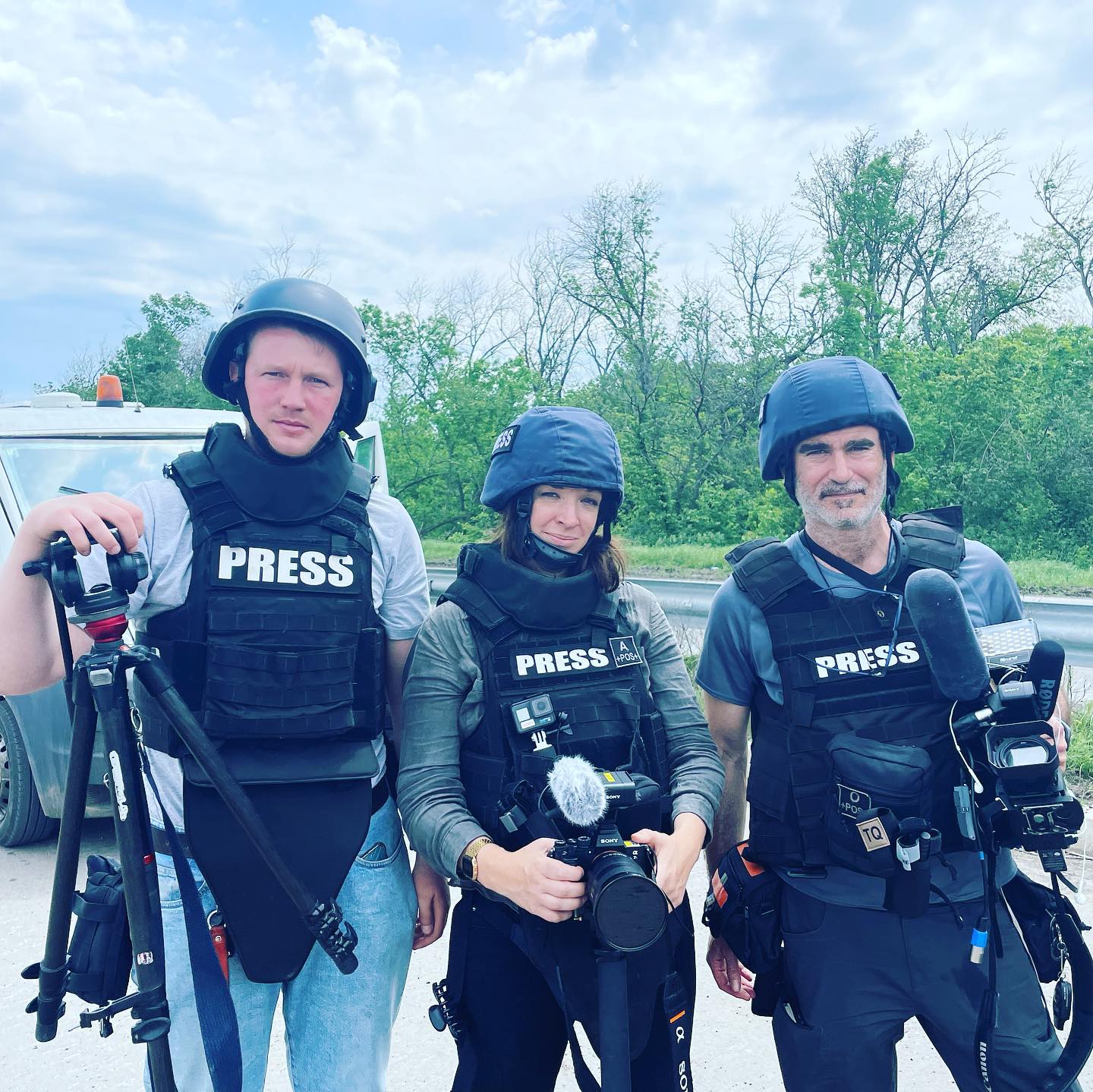
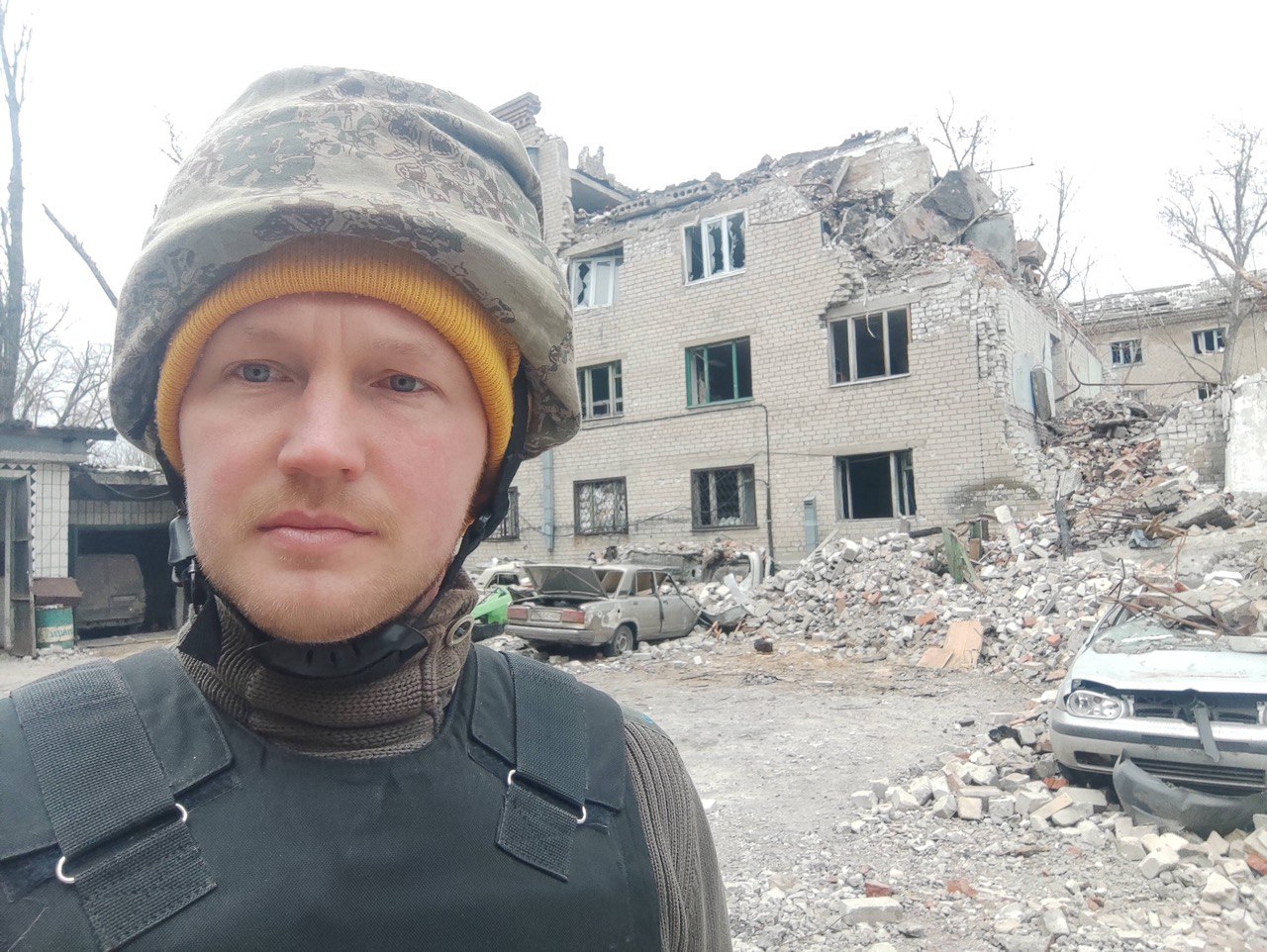
In June, Dmytro was approached by a group of Colombian cultural and public figures, journalists who came to Kyiv for the Book Arsenal festival. They had three free days, and the Colombians decided to visit Kharkiv, Izium, and Donbas in the front-line zone.
“It was supposed to be a completely safe trip,” says Dmytro. “We didn’t even take bulletproof vests with us. Our group included the founder of the Aguanta Ukraina non-government organization / Colombian politician Sergio Jaramillo, the famous writer Héctor Abad Faciolince (in my opinion, he is the second most important Colombian writer after Gabriel García Márquez), and the journalist Catalina Ángel Gómez, who works for France 24. Since the route of the trip included Izium, we were joined by a colleague of Héctor Abad – the writer Viktoriya Amelina, who, shortly before that, found the diary of the novelist and poet Volodymyr Vakulenko, who was killed near Izium. She was a very famous person; her work was paid attention to not only in Ukraine but also abroad. Recently, she investigated and documented war crimes.
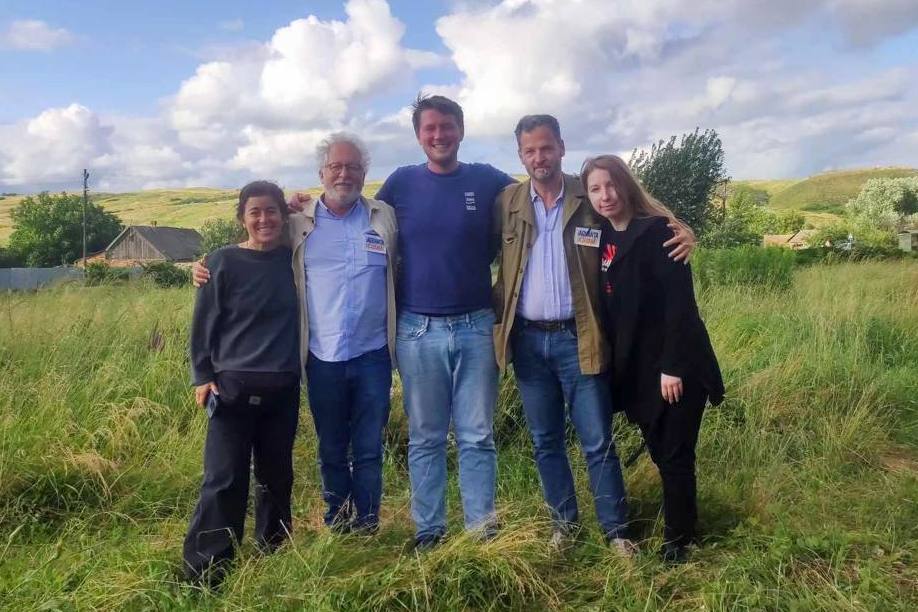
In the evening on Tuesday, June 27, already on the way home, the group had to stop in Kramatorsk as the curfew was approaching. For dinner, we went to the popular Kramatorsk restaurant, Ria Pizza.
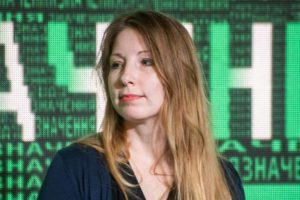
“They sat down at the table on the terrace. At 7:30 p.m., the missile hit it… Everyone was hurt, and fragments of the wall rained down from above. We were saved from inevitable death by the fact that we were not sitting inside the restaurant but on the terrace… Everyone was saved except for Viktoriya, whose head was hit by a beam that held the frame of the terrace,” says the fixer.
… Realizing that he was alive, Dmytro raised his head. Everyone around was lying on the floor. Dmytro and Catalina themselves had welts and scratches on their bodies. Héctor tried to concentrate but could not because of the concussion. Couldn’t hear well, could hardly speak. Sergio also suffered a concussion, and he had a wound in the leg… Only Viktoriya continued to sit in her seat. She saw nothing and did not react to anything, although her eyes were open. Soon, an ambulance took her to the Kramatorsk hospital, then to Dnipro, but it was not possible to save the writer – she died on July 1.
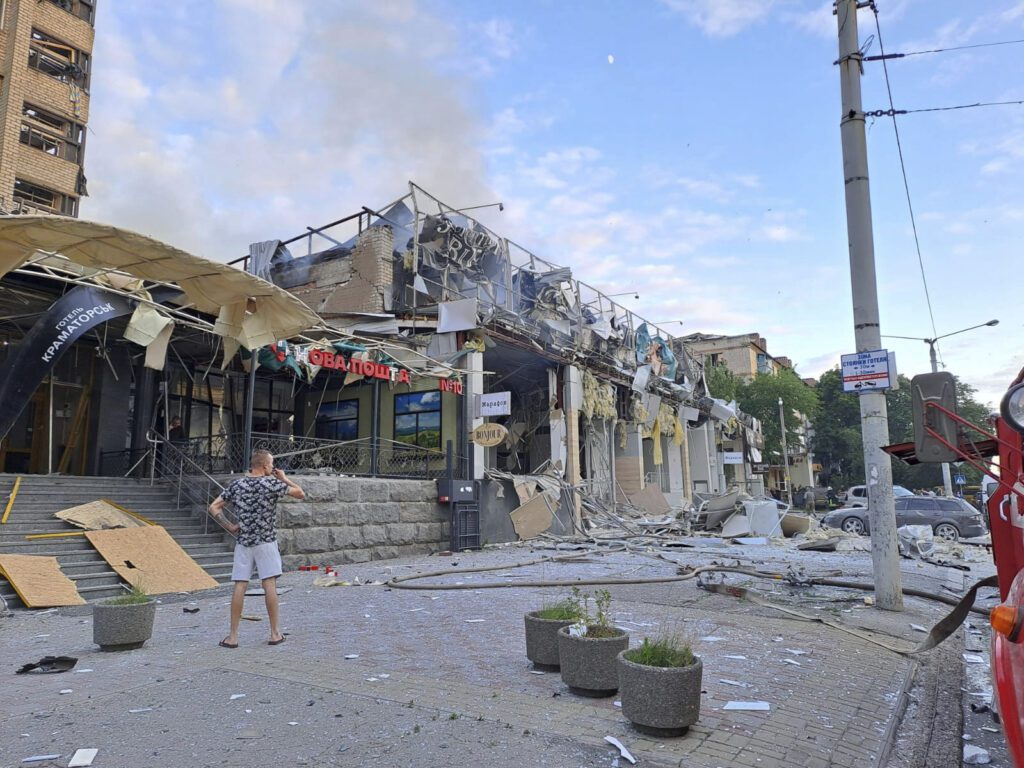
Dmytro‘s car, which was standing opposite the entrance to the restaurant, was seriously damaged – the blast wave blew out all the windows, bent the roof, and damaged the internal equipment. So, he asked that the Colombians be taken to the hospital in another car. A little later, he also reached the hospital.
“The Colombians gradually came to their senses. First of all, everyone cheered for Viktoriya’s condition. She was operated on. But the Colombians were supposed to leave Ukraine the next day, so I found a way to send them to Kyiv. Catalina decided to stay with Viktoriya until her relatives and friends arrived… Then Viktoriya was gone, then there was a farewell to her… All this time, I was probably “on adrenaline.” And only when all these events ended a week later, and I was able to relax, I felt the consequences of the concussion – weakness, sleepiness, inability to concentrate on work.”
Dmytro underwent treatment for several months – he recovered his physical and emotional state. Only in September did he feel that he could return to work.
“My car was also repaired. So, I will again help foreign journalists to make materials from Ukraine. I like it; I feel that it is beneficial,” says Dmytro. “After all, the world should know about our war, our pain, and our glory. Glory to Ukraine!”
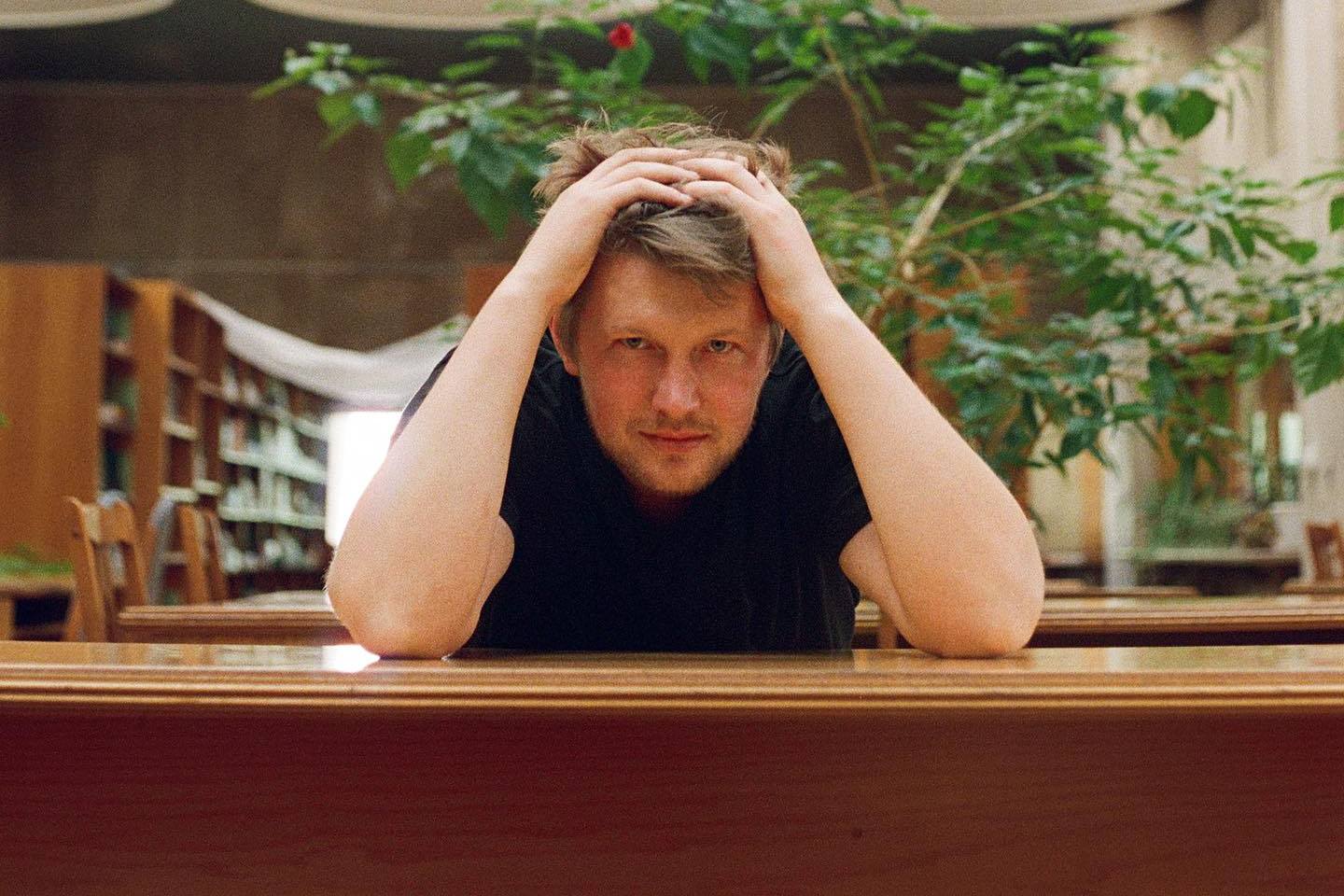
Maksym Stepanov, NUJU Information Service

 THE NATIONAL UNION OF
JOURNALISTS OF UKRAINE
THE NATIONAL UNION OF
JOURNALISTS OF UKRAINE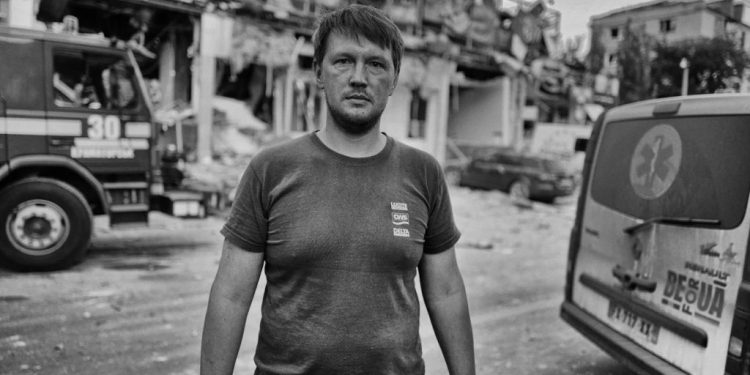
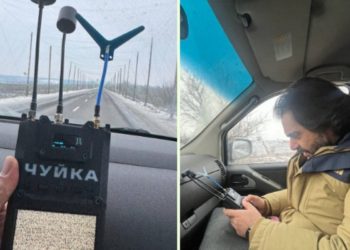
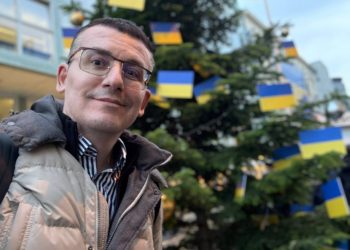
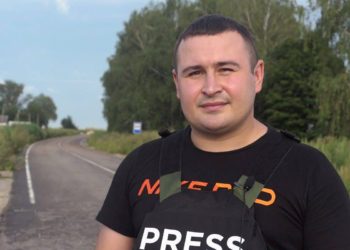













Discussion about this post